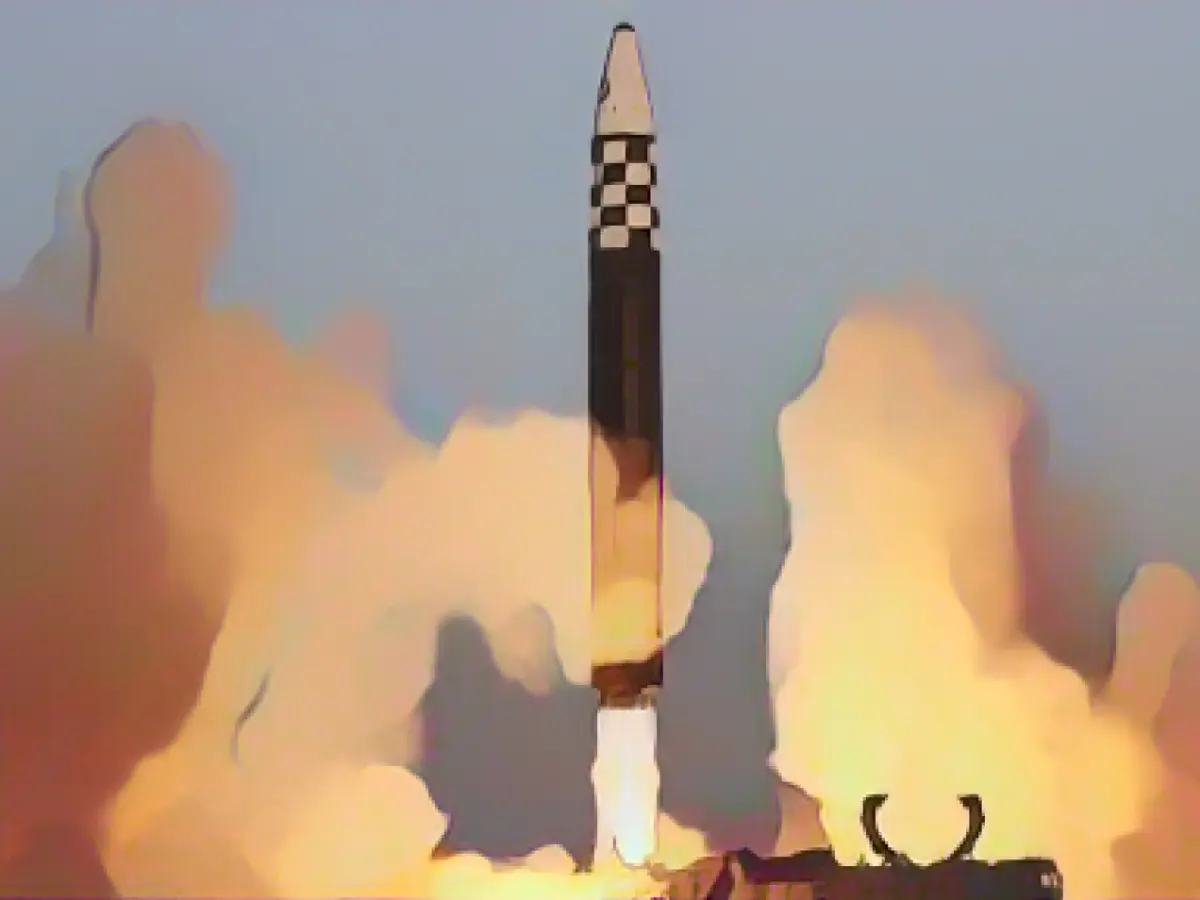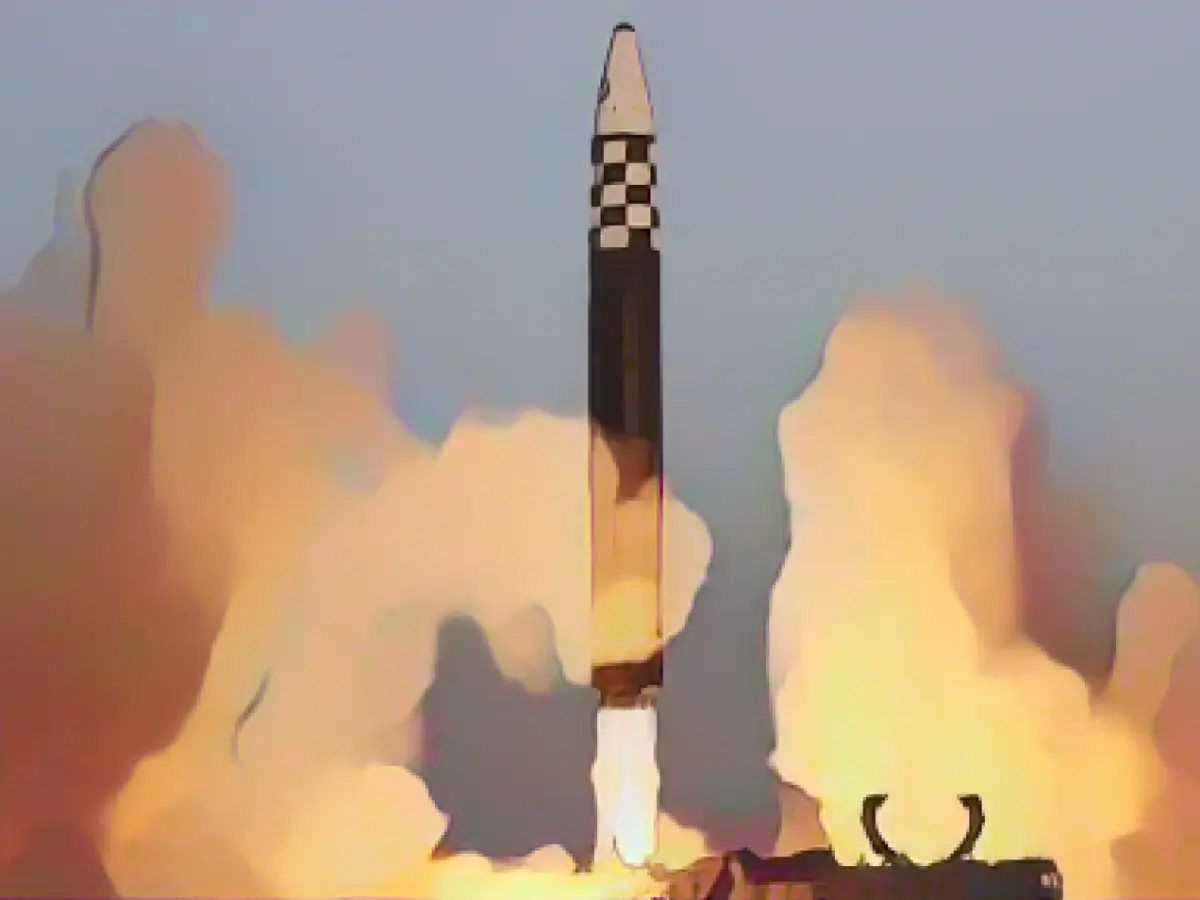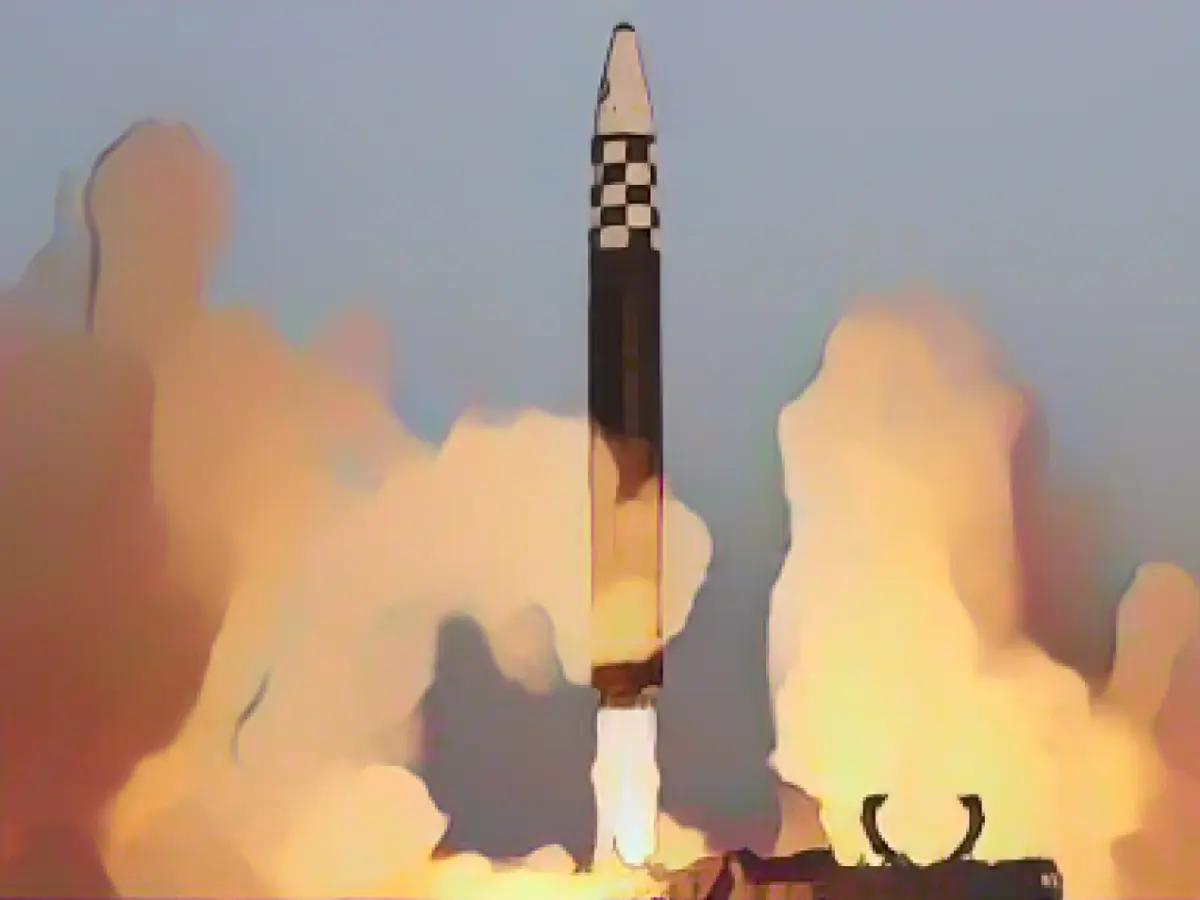Tensions on the Korean Peninsula Soar as North Korea Tests Suspected ICBM
In a bold move that has heightened tensions, North Korea fired a suspected intercontinental ballistic missile (ICBM) on Monday, according to South Korea and Japan. The missile, which was launched from a steep angle, traveled around 1,000 kilometers before falling into the East Sea (Sea of Japan). South Korea's General Staff estimated that the ICBM could theoretically reach a distance of 15,000 kilometers, posing a potential threat to the United States mainland.
This wasn't North Korea's first missile test in recent times. In fact, it was the second test within 12 hours. The previous night, North Korea had tested a short-range missile despite UN prohibition orders. The timing of these tests is particularly concerning, as they came shortly after the temporary deployment of the USS Missouri, a nuclear-powered American submarine, in the South Korean port city of Busan. The deployment was intended to serve as a deterrent to North Korea.
Japan's Prime Minister Fumio Kishida condemned North Korea's missile tests, stating that they threatened "peace and stability in the region." South Korea's military also criticized its neighbor for serious provocation, urging North Korea to cease these actions and comply with UN Security Council resolutions. These resolutions prohibit the self-proclaimed nuclear power from launching or even testing ballistic missiles of any range.
Unfortunately, this isn't the first time North Korea has violated international sanctions. In November 2024, North Korea launched its first military reconnaissance satellite, prompting the USA and its partners South Korea, Japan, and Australia to impose new sanctions. They accused Pyongyang of using technologies directly related to its ICBM program.
The international community has consistently condemned North Korea's nuclear and missile program, which Pyongyang has long accused the USA of pursuing a hostile policy towards. The USA and South Korea have resumed their joint military exercises following a suspension, further straining relations between the two nations.
The most recent missile test has not gone unnoticed by the international community. Germany, for instance, strongly condemned North Korea's actions, warning that the country was irresponsibly increasing tensions in the region and threatening regional and international peace. The USA and its allies have urged North Korea to refrain from further tests, enter into serious negotiations on dismantling its nuclear and missile programs, and fully implement UN Security Council resolutions.
Background Insights
North Korea's production and capabilities in ICBMs have been a cause for concern for the international community. The Pentagon has warned that North Korea may soon move into production its ICBMs capable of reaching the U.S. The Hwasong-19 ICBM, with its solid-fuel design, can be deployed and prepared for launch faster than missiles with liquid propellant, potentially minimizing pre-launch warning times.
The Hwasong-19 has been tested multiple times, with the latest test in November 2024, demonstrating its ability to fly higher than any previous missile launched by North Korea. This poses a significant threat to the U.S., its allies, and international peace and stability.
In response to these threats, the U.S., Japan, and South Korea have condemned North Korea's ICBM test as a "major escalation" and pledged to apply "maximum pressure" to counter Pyongyang's nuclear threat. The U.S., with its vast arsenal of nuclear and conventional weapons, has assured that any attack by North Korea would be met with an "overwhelming" response.
However, there are concerns within the U.S. military about prioritizing homeland defense over defending allies with its nuclear triad. Despite these concerns, the U.S. has a robust deterrence strategy in place, leveraging its nuclear triad for defense.
North Korea's threat capabilities are not limited to ICBMs. The country has also tested sea-to-surface strategic cruise guided missiles, capable of flying 1,500 kilometers in elliptical and figure-eight trajectories. These missiles pose a distinct challenge to missile defense systems due to their low-altitude flight path and maneuverability.
The Future of North Korea and the Korean Peninsula
The future of the Korean Peninsula and its relationship with the international community remains uncertain. The international community has consistently condemned North Korea's nuclear and missile program and urged the country to enter into serious negotiations on dismantling its nuclear and missile programs.
The latest missile test has served as a stark reminder of the threat posed by North Korea and the need for a peaceful resolution. The international community must continue to apply maximum pressure on North Korea to cease its provocative actions and comply with UN Security Council resolutions. Only then can the world hope to achieve peace and stability on the Korean Peninsula.






